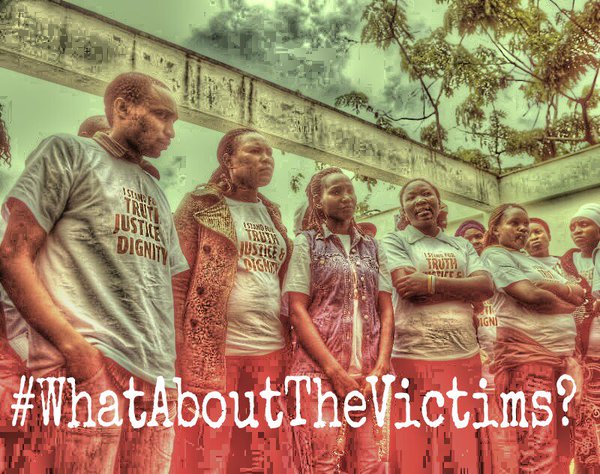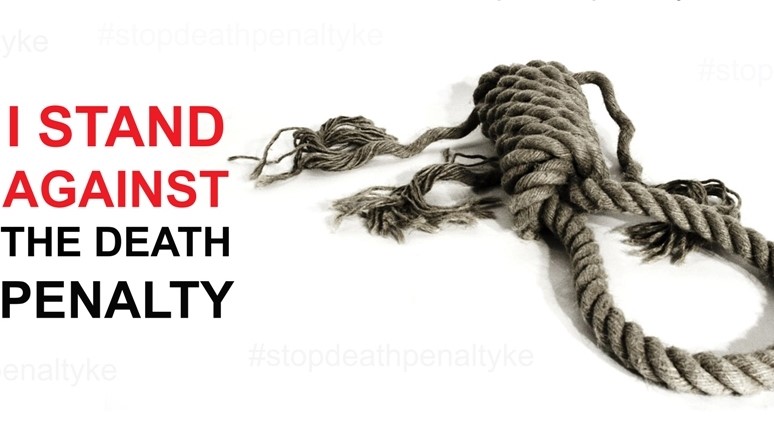NAIROBI, KENYA, 23 SEP 19
Survivors of the 2007-2008 post-election sexual violence that roiled Kenya have waited more than 11 years for justice, accountability, and reparations. Today in Nairobi, this excruciating wait was delayed once more.
The Kenyan judiciary announced that Justice Weldon Korir will not be in court today to give directions on the finalization of Constitutional Petition No. 122 of 2013, which seeks to hold the Government of Kenya accountable for its failure to prevent post-election sexual violence, investigate the perpetrators, and provide reparations to the survivors.
Instead, today Justice Korir is participating in a week-long hearing of a different case, one that was filed in 2019. The judiciary has chosen to prioritize a case from this year over one that has been languishing for more than six years. Survivors of post-election sexual violence will have to wait at least several more months to have their final day in court.
The co-petitioners – a group of eight post-election violence survivors and four Kenyan non-governmental organizations, including Physicians for Human Rights, Kenya Section of the International Commission of Jurists (ICJ-Kenya), Coalition on Violence against Women (COVAW) and Independent Medico-Legal Unit (IMLU)– have experienced years of legal and bureaucratic delays and indefensible barriers to having their case resolved since filing in February 2013.
In the six years since petitioners submitted their petition, a total of five different judges have presided over the case – causing vast disruptions and discontinuity. The current presiding judge, Justice Weldon Korir, has been nominated for promotion to the Court of Appeal and is awaiting confirmation by the President, which has been delayed for unknown reasons. The first judge, Justice Isaac Lenaola, left for a Supreme Court promotion at the tail-end of the case in November 2016, after hearing all of the petitioners’ sixteen witnesses, including each of the survivor-petitioners, who courageously and painfully shared their stories in court. Unexpected, unexplained, and suspicious transfers of three subsequent judges from the Constitutional and Human Rights Division have greatly delayed the justice process, as each new judge must orient and familiarize himself with the contours of the case.
“It is now clear that the Kenyan justice system is either incapable or unwilling to deliver justice for the survivors of these terrible crimes,” said Christine Alai, Legal Consultant at Physicians for Human Rights, a co-petitioner in Petition No. 122 of 2013. “Failure to provide accountability reinforces a culture of impunity surrounding future Kenyan elections, where the risk of political volatility and further sexual violence is high. We call on the judiciary to prioritize this case for an expedited completion. After five judges have transferred off this case, this is simply an outrageous miscarriage of justice.”
“We have had no other avenues to obtain justice since the gruesome ordeal of the 2007-2008 post-election sexual violence,” said the eight survivor-petitioners in the case. “The severe harm we suffered has continued long beyond the immediate post-election period. We have endured long-term physical, psychological, and social scars – which will only continue until the Government of Kenya fulfills its basic legal and human rights duties to acknowledge the harm we have suffered, ensure accountability, and give us reparation.”
“The Government of Kenya failed to put in place measures to anticipate and effectively prevent or mitigate election-related violence, including sexual violence,” said Christine Alai. “In the aftermath, the state failed to help survivors access medical and psychosocial care; the police refused to investigate or document crimes; perpetrators went unpunished; survivors did not receive reparations. The state is obligated to act on all of these fronts. The survivors should have meaningful access to justice and are being denied their basic rights: Justice delayed is justice denied.”
“Crucially, the state must put in place measures to prevent similar violations from occurring during future elections. The Government of Kenya should never allow this to happen again.”
“The lack of clear policies for swift and effective continuity have greatly hampered timely access to justice for the survivors,” said Abdul Noormohamed, Executive Director of ICJ-Kenya, another co-petitioner in the case. “The justice system must now take concrete and decisive action to ensure that its administrative processes will no longer be a barrier to timely completion of this case. Action and accountability are far past due.”
More information about justice for survivors of post-election sexual violence in Kenya is available at the Physicians for Human Rights website.
Frequently Asked Questions and Answers
What happened in Kenya after the 2007 election?
Widespread violence broke out in Kenya following the contested outcome of the presidential election held on December 27, 2007. The main opposition party and its supporters asserted that its presidential candidate, Raila Odinga, had been robbed of victory through electoral fraud. The declaration of the incumbent, Mwai Kibaki, as president for a second term sparked ethnic-driven violence against those perceived to be regime supporters within opposition zones. This was followed by retaliatory attacks in regime zones and by state security forces.
Post-election violence (PEV) swept the country into 2008, leading to looting, destruction of property, and deadly violence. Sexual and gender-based violence (SGBV) was committed in six out of eight provinces where the PEV occurred. At least 900 people suffered SGBV, which was largely perpetrated by Kenyan security forces, as well as by gangs. Women and girls were disproportionately affected, but men and boys were also attacked. In many instances, people were raped and abused in the presence of their children and spouses.
Many survivors of violence were afraid to report violations to the authorities; others who tried were turned away. To date, no cases of post-election SGBV have been investigated and prosecuted. The Kenyan government’s lack of will to ensure justice for survivors has fueled a culture of impunity for perpetrators and exacerbated the suffering of survivors.
What is Constitutional Petition No. 122?
Constitutional Petition No. 122 of 2013 seeks to hold the Kenyan government accountable for failure to: prevent the violence and resulting sexual and gender-based violence (SGBV); protect the general populace, including survivors, from SGBV; investigate and prosecute perpetrators of SGBV; and provide prompt, adequate, appropriate, and effective reparations to survivors of SGBV.
In the petition, the petitioners claim that the government failed to properly train the police to protect them from violence in general, and SGBV in particular. Further, the petitioners claim that following the post-election violence, police failed to properly investigate their claims. Also, failure to effectively document the crimes and gather evidence prevented effective prosecutions, thus leading to a miscarriage of justice for survivors of SGBV. The petition also asserts that the government failed to provide reparations, including access to medical and psychosocial services.
Why was the petition filed?
Survivors of post-election violence waited for the Kenyan government to initiate thorough investigations until it became clear that there was no real political will to ensure their rights to credible and comprehensive redress. Despite enormous risk, in 2013 eight courageous survivors broke their silence and demanded action from the government of Kenya.
In addition to the eight survivors (six women and two men) who suffered sexual violence during this period, the petitioners include Physicians for Human Rights, the Coalition on Violence Against Women, the International Commission of Jurists (ICJ-Kenya), and the Independent Medical-Legal Unit.
While the case is not a class-action suit, the outcome could affect the many thousands of Kenyans who continue to live with the serious effects of the harm they suffered.
Who are the survivors who brought the case against the government?
The survivors in the case are six women and two men who suffered sexual and gender-based violence during this time period. Their identities are protected as litigation is ongoing.
The eight petitioners are not the only survivors of the widespread and brutal acts of sexual violence perpetrated during the period of post-election violence. They are representative of more than 900 other survivors, whose testimonies and reports were submitted to the Commission of Inquiry into the Post-Election Violence in 2008, detailing gruesome incidents of individual and gang rape, forced circumcision, and other forms of sexual brutality. These violations have resulted in severe physical injuries, detrimental psychological and socio-economic effects, and other serious health complications among survivors of the 2007-08 violence.
What are Kenya’s legal obligations?
The petition is premised on the notion that the primary responsibility to protect citizens and provide redress when rights are violated lies with each sovereign state. It is the government’s responsibility to protect civilians against sexual violence and ensure credible police investigations and prosecutions of these crimes.
In this instance, the government of Kenya bears legal responsibility – as outlined in the country’s constitution, as well as in international and regional human rights treaties adopted by Kenya – to enact and enforce laws, establish effective complaint mechanisms, and support justice processes that prohibit sexual violence.
The Kenyan government is obligated to promptly and impartially investigate, prosecute, and punish alleged perpetrators of sexual violence, and provide adequate compensation to survivors of these crimes. Moreover, whenever such violence occurs, the government must ensure that survivors have adequate access to medical services and psychological care.
Media Contact
Moses Okinyi
SIGNED
The Kenyan Section of the International Commission of Jurists – ICJ Kenya
Physicians for Human Rights – PHR
Coalition on Violence against Women – COVAW
Independent Medico-Legal Unit – IMLU











